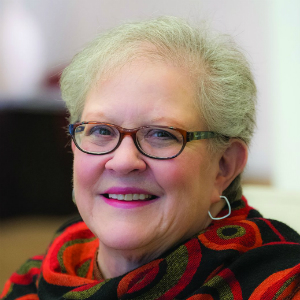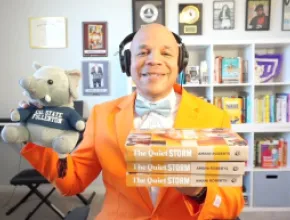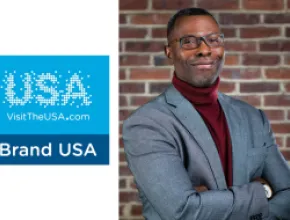Following are responses from interviews I recently conducted with two of MPI’s founders who both are long-time meetings industry educators: Howard Feiertag and Rod Abraham.
Howard Feiertag is currently a half-time Instructor at Virginia Tech in Hospitality and the Tourism Management Department of Pamplin College of Business, and Rod Abraham is a consultant and provider of on-site staffing.
I figured if anyone could get to the bottom of what defines a meeting professional, it would be these two.
The responses were edited for clarity and space.
Joan Eisenstodt: What was your first job that had “meetings/hospitality-related” responsibilities?
Howard Feiertag: In 1962, I was employed as the first manager of the Charlotte [N.C.] Convention Bureau [now Visit Charlotte], as an employee of the City of Charlotte Chamber of Commerce.
Rod Abraham: Business manager, assistant managing director, vice president, senior vice president with the American Society of Chartered Life Underwriters (CLU), where I started in 1957, with meetings responsibilities beginning in 1966.
JE: What skills or traits did you have then that were especially valuable to working in meetings/hospitality industry?
HF: Not very many! I did not know much about hospitality or CVB work. [I had been] involved in doing insurance investigations for a national company and was scheduled to be transferred to NYC. At the time I was president of the Charlotte Junior Chamber of Commerce and very active in community projects. I was chairman of a Chamber committee to search for a manager for the new CVB the Chamber planned to organize.
In announcing my projected move to New York City, local Chamber folks invited me to lunch and tried to talk me into staying in Charlotte and offering me various jobs. None were of interest to me; however, I suggested, that perhaps I would like to take the job for which I was searching for a manager, but did not have any experience in that area. So, ultimately, I ended up with the job.
I guess the skills I offered were that I was “personable,” met people easily, got involved in community volunteerism, and I guess they thought I had other qualities that would work well for the job. [Editorial comment: It was his personality and willingness to always learn and grow in all he did!--JE]
RA: I completed a BS in accounting at night while working in accounting and related business management activities. I also completed studies and examinations for a CLU designation.
The former taught me to think analytically and the later enabled me to better understand the continuing education wants/needs of our members.
JE: If you were to begin again today, what skills do you think you’d need that are different from those you had?
HF: Of course, having a good insight on what goes on in the business of convention bureaus; selling skills (which I did not know I had), understanding the business of venues, understanding of the product and how to present it to meet the needs of a prospect; how to prospect for business; understanding contracts; and know how to create a team effort of suppliers in working together.
RA: A combination of parts of the CMM and CMP programs (strategic and logistics).
JE: What are the two best changes or conditions you’ve seen in the industry since you began?
HF: Improvement in communication skills via business technologies. A great increase in individual travel as well as group travel via meetings, incentives, conventions, etc., via improved economic conditions.
RA: Changing emphasis from tactics/logistics to strategic (ROI/measureable objectives, attendee expectation focused programming, CSR, etc.). Still a long way to go and we need more senior meeting managers having a “seat at the table,” [indicating] recognition of their value to the organization.
JE: And what are the two worst changes or conditions you’ve see now?
HF: Improvement in communication skills via technologies, whereby we now find entry-level employees, even college graduates, without writing skills, poor penmanship, spelling skills, grammatical skills. Dress codes have changed for the worse on young folks in this business.
Millennials in this business, for the most, are not “people” oriented, and are too tied up with electronics that become distractions to business. They cannot write letters, but insist on communicating over electronic devices and spend a good deal of time on social media.
Over the years, the changes that have taken place, from a handshake on a deal, and maybe a single-page letter of agreement to 20 pages of a contract.
RA: Commoditization of the meeting planning/management process by large corporations (i.e., pharma); lack of resources for those who opt to be small business owners.
From start-up to survival to success, there is no ongoing resource or forum for learning and sharing the “stuff” needed to survive and thrive as a small business owner in our industry.
JE: Wisdom—of which you have much—can you share to pass along to the next generation?
HF: Making a Difference is something to which we all need to pay attention. What do we do when appropriate to make a difference in someone’s life ... just one person at a time, perhaps? Do we do things to make people feel good, or even make ourselves feel good? Just remember the starfish story. http://www.cityyear.org/about-us/culture-values/founding-stories/starfish-story
I am proud of the fact that I never, yes never, had a job I did not like. Further, I actually never applied for a job; always having been recruited from one job to another. The point is that we must like what we do, and if we are not happy with what we are doing, then it is time to change.
We must take on every job as if we were the owners of the situation, and work on that behalf through the job, always looking to improve, knowing how to work well with others, like what you are doing, and seek more to do to improve the business. Maybe that is what we call being successful.
RA: Here is a list of key items I wish I would have known starting out.
- Master logistics, then delegate so you can earn your seat at the table by being strategic and understanding accounting/finance, technology and adult learning components.
- Seek a mentor, then become one; get involved in an industry association (the more you give, the more you get).
- Control technology (don’t let it control you).
- Understand your employer and its industry.
- Be pro-active in explaining what a meeting manager is and does, and how our efforts enhance an organization’s bottom-line (financial and mission).
- Take (measured) risks while embracing all the above.
Parting words from Joan Eisenstodt: Special thanks to Howard Feiertag and Rod Abraham for taking the time to respond to my questions. Check out some of my own advice to new planners as shared via the 10/02/15 Friday With Joan newsletter. As always, I encourage you to share your own advice in the comments there.







